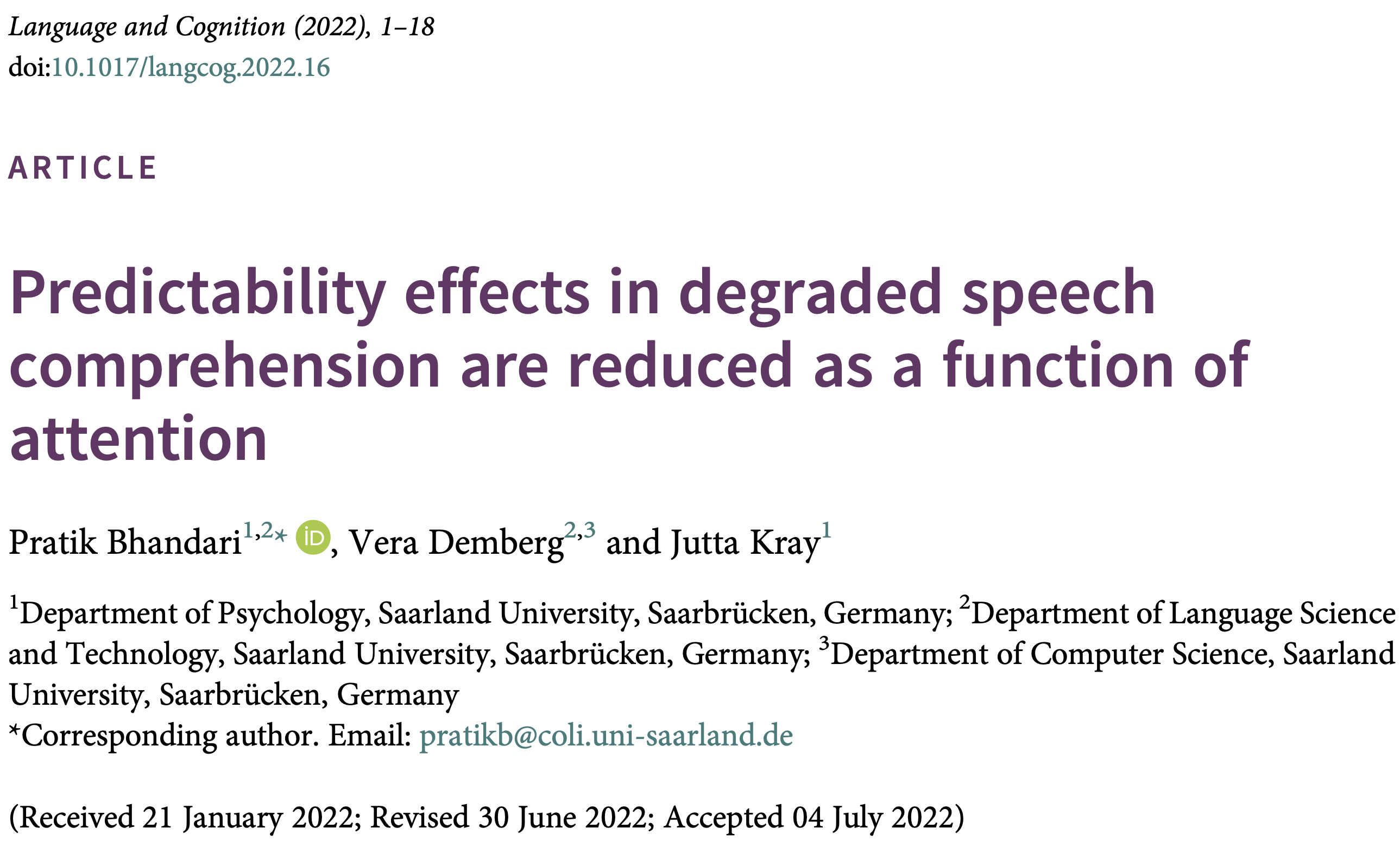Attention is mostly what you need
Context matters, so does attention
A couple of days ago, our paper on the role of attention in the facilitatory effect of predictability in the comprehension of degraded speech was published in Language and Cognition.
In an earlier paper published in the section Auditory Cognitive Neuroscience of Frontiers in Psychology, we had shown that listeners utilize context in a sentence that facilitates their comprehension of a degraded speech. Say, in a high predictability sentence like, “She dribbles the ball”, identification of “ball” is facilitated by its preceding context compared to a low predictability sentence like, “She buys a ball”. This Language and Cognition paper shows that such facilitation is possible only when listeners pay attention to the sentence context and process it.

In one experiment, we asked participants to listen to a degraded speech and report only the final word of a sentence they heard. It restricted their attention to the target word at the sentence-final position (e.g., “ball”). In another experiment, they were asked to report the entire sentence. This task did not restrict their attention to any part of the sentence; they could attend to the sentence context that preceded the target word. The results showed that the effect of predictability—a significant difference in the accuracy of recognition of the words like “ball” between high and low predictability sentences—was observed only in the second case when the participants reported the entire sentence. While reporting only the final word, there was no such effect of predictability.
Our findings suggest that when they report only the sentence-final target word, listeners’ attention is restricted to a particular time point as the speech unfolds in time. They do not process the context information that precedes the target word. Hence, there was no effect of predictability. On the contrary, while reporting the entire sentence, they also attend to the sentence context. They process the context information forming predictions about upcoming linguistic units; in this case, the prediction is about the sentence-final target word. Accuracy is lower for words that are less predictable from the context than those that are more predictable from the context.
All in all, our findings show that prediction in language processing is not an automatic process. Especially in an adverse listening condition, listeners have to attend to the context information to get any benefit from the context. In other words, attention is a prerequisite to processing context information and generating linguistic predictions.
Attention is all you need. Not all, but something you need to start with.